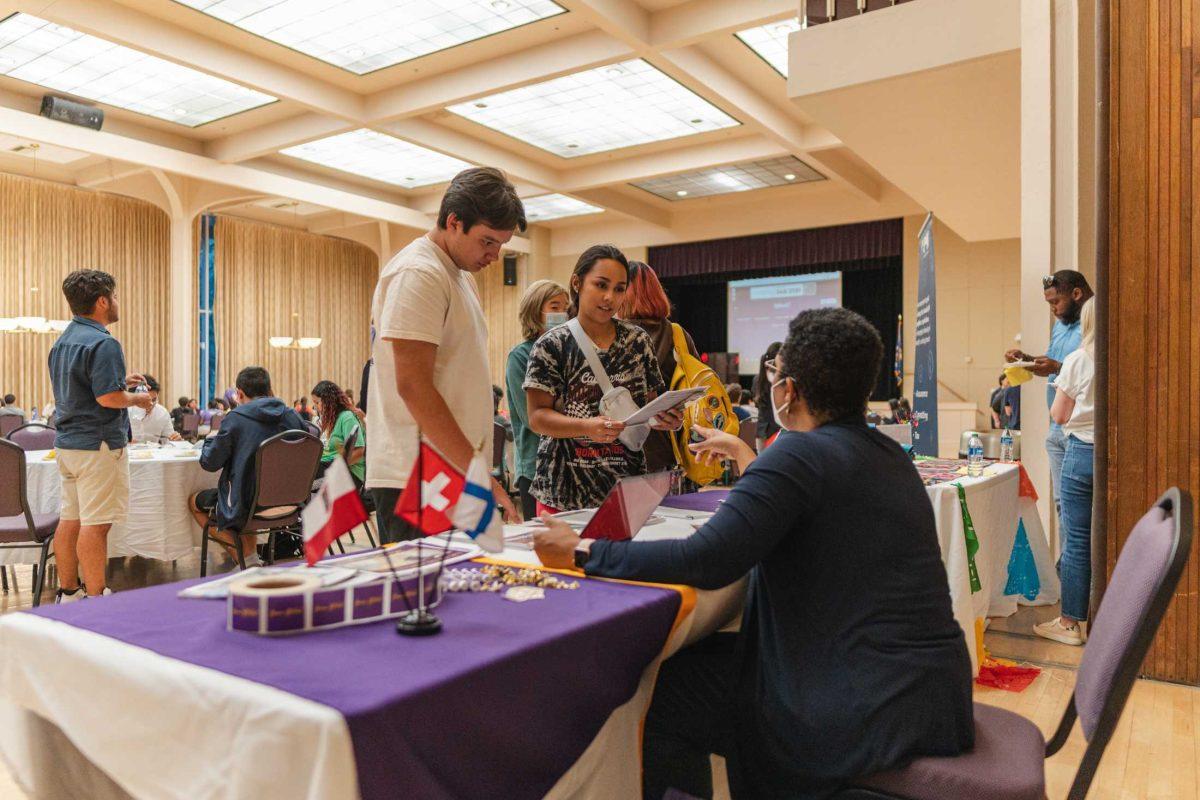Some University students are part of what could be “ground-breaking” research in elementary education.
Students in a special topics, service-learning horticulture class are studying the effects of garden-based educational activities on local fifth-grade students.
The idea for the class originated with horticulture graduate student Leanna Smith’s thesis. Smith’s thesis examines the effects of a garden curriculum on science aptitude and attitude among the elementary students.
“Little research has been conducted to quantify the benefits of school gardens and the formal exercises using them,” Smith said.
Smith has worked with a researcher from Texas A&M, who has done similar work in the field of school garden programs. Smith’s research has one major difference, though.
“At A&M, the lady did similar research by sending the material to the elementary teachers to use, but she did not go into the classrooms and work with the students,” Smith said. “We actually have contact with the students.”
Carl Motsenbocker, associate professor of vegetable crops, is the instructor for the Horticulture 4012 school garden service-learning class. Smith is his graduate assistant.
The class, made up of undergraduate and graduate students and agricultural extension workers, goes to three different elementary schools weekly to do science instructional programs and supervise the elementary students’ gardening.
“Master gardeners, who have completed 50 or more hours of advanced horticultural courses, assist us in instruction at the schools,” said Miles Brashier, county agent for Pointe Coupee Parish.
The fifth graders planted seeds and accepted the responsibility of watering the plants every week. They also do art projects and even rap songs about plants.
University students and elementary students seemed to be enjoying themselves.
“It is really fun, because we get to learn about plants,” said Isaiah Jackson, a Park Elementary fifth grader. “I hope they stay with us for the rest of the school year because they help us a lot.”
Some University students are learning things and benefiting in ways they did not expect.
“A lot of horticulture students don’t even think about teaching. This class is good for opening that option to them,” said Heather Pecot, a horticulture graduate student.
Three enthusiastic fifth graders shared the “plant parts rap” from their gardening curriculum.
“Plants are our friends / we give them special care. They feed, they shelter, they give us fresh air,” rapped Park Elementary fifth graders Amber Lawrence, Antonio Lewis and Isaiah Jackson.
The horticulture class has given important assistance to Park Elementary fifth-grade teacher Richard Culpepper.
“The program is excellent because the small- group attention the students receive could not be given to them if I were the only one here,” Culpepper said.
This service-learning class is different from many of the other ones offered at LSU.
“It is leverage service-learning,” said Jan Shoemaker, director of the University Service-Learning program. “The college students are helping the elementary students, and they, in turn, are doing a service for the community [by helping to beautify the campus].”
Smith’s research statistics have not been published at this point to be compared with the research from Texas A&M, but some University students think they already can see the difference their work makes.
“[The fifth graders] actually remember what they did a whole week before,” said Kyle Haydel, a horticulture junior. “The activities are hands-on, and they are having fun.”
The Learn and Service Commission, housed in the Office of the Lieutenant Governor, gave Park Elementary a grant for continued use of the gardening curriculum and beautification of the school grounds.
“Our horticulture and landscape architecture students will be able to help Park Elementary implement plans for the grant,” Motsenbocker said.
The second half of this special topics class will be offered next spring semester. Interested students should contact Carl Motsenbocker in the horticulture department at 578-136 or Jan Shoemaker in Service-Learning at 578-9264.
Students study ‘growing’ research
November 22, 2002





